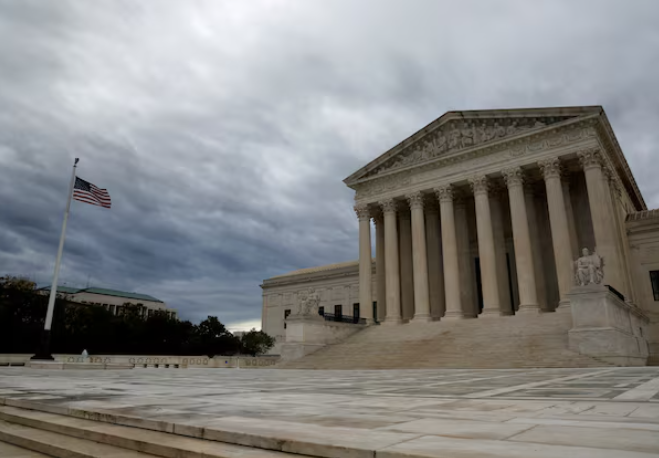Under a newly revised ethics rule, U.S. Supreme Court justices and federal judges are not required to publicly disclose when they dine or stay at someone’s personal residence, even if that residence is owned by a business entity. The U.S. Judicial Conference’s Committee on Financial Disclosure issued this amended policy on Monday, which sets rules for the nine Supreme Court justices and other federal judges. Critics argue the policy weakens existing ethics standards.
The committee’s update comes amid scrutiny of Justice Clarence Thomas, who is facing allegations that he failed to report gifts, including luxury travel, from Texas businessman and Republican donor Harlan Crow. Donald Sherman, chief counsel at Citizens for Responsibility and Ethics in Washington (CREW), criticized the new rule, referring to it as the “Clarence Thomas exemption.”
The Supreme Court has been under increasing pressure regarding ethics concerns, particularly involving undisclosed trips and gifts linked to Thomas and other justices. Last year, the court introduced its first formal code of conduct, but it lacked enforcement mechanisms.
The updated rules clarify how gifts received at personal residences owned by corporate entities may fall under “personal hospitality,” meaning judges would not need to include them in disclosure reports. Gabe Roth, head of the advocacy group Fix the Court, stated that the new policy weakens stricter regulations from last year and “twists” the definition of personal hospitality. This could exempt past stays by Justice Thomas at properties owned by Harlan Crow, such as Camp Topridge in New York, from disclosure.
Justice Thomas had previously claimed he was advised that he did not need to report such stays as “personal hospitality.” Neither Thomas, Crow, nor the Supreme Court responded to requests for comment on the revised rule.
Earlier in March 2023, the committee, prompted by Democratic Senator Sheldon Whitehouse and others, had adopted stricter rules limiting the use of the personal hospitality exception. These regulations required judges to disclose stays at commercial properties and gifts funded by entities or third parties. However, the Monday rule change exempts judges from disclosing stays at personal residences owned by entities if the properties are not rented out commercially.

